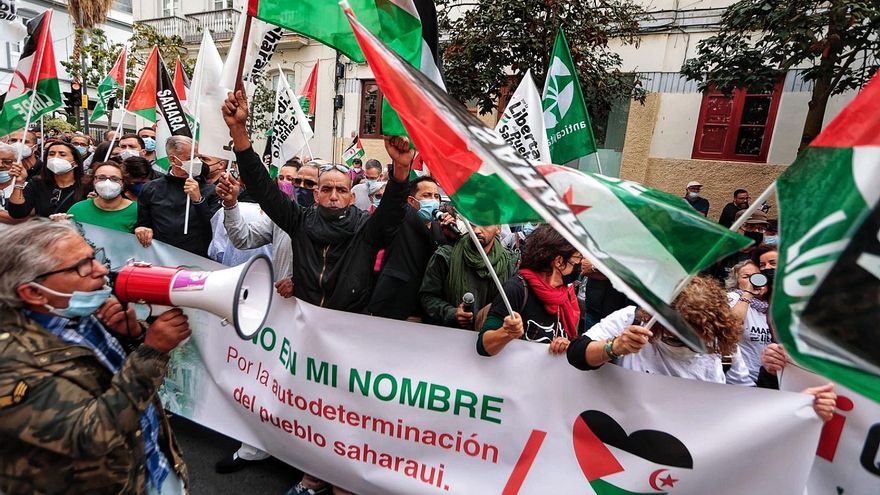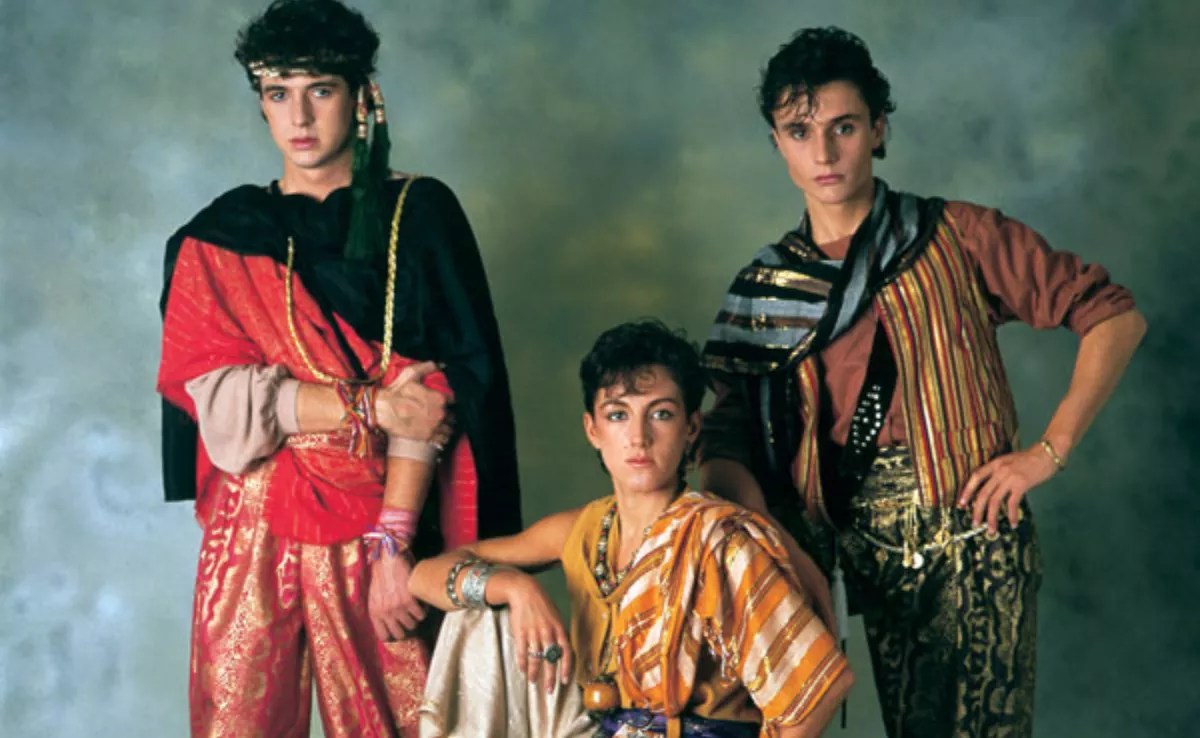
Half a thousand people responded to the call to gather today in front of the headquarters of the Government of Spain in Tenerife as a protest against the copernican turn of the central Executive, now favorable to the theses of Moroccoin the eternal conflict of the Occidental Sahara. President, Pedro Sanchez, has been the main target of slogans and banners. Among the slogans, chanted for an hour in the central street Méndez Núñez -cut off to traffic as more people joined-, classics such as The Canarian people with the Polisario Frontor free sahara and others adapted to the present, always with the socialist politician as the center: Sánchez listens, the Sahara is in the fight or Sánchez attends, the Sahara is not for sale. The stage is adorned with the flags of the Saharawi Arab Democratic Republicthe SADR, and of Canary Islands -with the seven green stars-. Veterans of old struggles meet politicians, active or not, but also young people, including third-generation Canarian Saharawis. Very colorful, with the melhfas, the traditional clothing of women, and the blue of the Tuareg, the men of the desert, in the forefront.
The flags were already waving half an hour before the start of the concentration in the surrounding bars. Amina, a waitress who has been working here for ten years, talks with the women who carry the SADR banner. She says that she, of Saharawi descent, but born in Agadir, is in favor of a Sahara within Morocco because the inhabitants of the Sahara came from Morocco, “according to history.” But she also clarifies that she has a family on the other side and that she talks without problem because “we peoples understand each other, governments and rulers are something else.”
Youths
Daniel and Santiago are 17 years old. One studies at La Laboral in La Laguna and the other, whose father is a Saharawi, at the IES Santa Ana de Candelaria. Sheathed in a Canarian flag, they show a banner whose text reads: “Canary Islands, Sahara, two peoples, the same struggle, independence.” They show they know the story: “This is the second betrayal of Spain after leaving the territory in 1975.” Nana holds a banner, she has been on the Island for eight years. She was born in the refugee camps of Tindouf, in Algeria, where her family is. She is clear that “Spain is responsible for what was her colony. Now Pedro Sánchez endorses the violation of human rights and the non-compliance with what the UN determines about the referendum. We feel betrayed and abandoned again”. Korea strongly the slogans. Both in Spanish and Arabic.
“Not in my name”
A cry resounds from time to time among the people: “Not in my name.” It expresses the opposition of at least part of the Canary Islands to Spain’s change of course in this eternal conflict. Because there are already more than 45 years of controversy over the future of Western Sahara. An activist reads the common manifesto in all the concentrations of the country. The summary is that “the Government of Spain is completely wrong” in taking this pro-Moroccan position and that “the Saharawi people will never surrender”. An appeal to Spanish and Canarian society: “The moment for solidarity is now”.
the activist
Soukaina Ndiaye is the president of the Network of Migrants of Tenerife and of the Association for the Freedom of the Saharawi People, as well as a member of the Saharawi Women in the Canary Islands collective. She has lived in the south of the island for twenty years. She shows her “surprise and indignation” at the change in position of President Sánchez. He repeats the well-known arguments in defense of the self-determination referendum, but adds: “Morocco’s blackmail has no end because it is not going to give up Ceuta and Melilla, the Canary Islands and even the Andalusian coast. For Spain it is not going to have any revenue” . She appreciates her support that she “feels”, to the Spanish and Canarian population. She concludes: “We Saharawis decide for ourselves, no one can do it on our behalf.”
the curious
A large group of tourists observe the concentration. Sue and Ellen are friends and their curiosity leads them to ask. They are interested in the reason for the protest, but also in the architectural value that the building that was the Civil Government and today houses the Government Subdelegation may have. Alfred and Joan form a middle-aged couple. Like the two friends, they are English and show their surprise because they do not have the slightest reference to this failed decolonization process. No idea.
While the English continue on their way down Viera y Clavijo street, the I sing to freedom by José Antonio Labordeta closes an act sealed by the characteristic sons of Saharawi women, sgarit as they say in Amazigh. The wind seems to want to put its signature on the morning. Perhaps it comes from the Sahara, although this time, fortunately, without sand.















